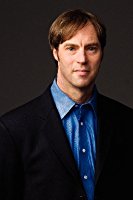- Paperback: ۴۴۸ pages
- Publisher: Penguin Books; Mti edition (April 26, 2016)
- Language: English
- ISBN-10: ۰۱۴۳۱۳۰۱۵۳
- ISBN-13: ۹۷۸-۰۱۴۳۱۳۰۱۵۴
- Product Dimensions: ۴.۲ x 0.9 x 7.5 inches
- Shipping Weight: ۸.۸ ounces (View shipping rates and policies)
- Average Customer Review: ۴.۶ out of 5 stars See all reviews (۱۷,۹۵۰ customer reviews)
Me Before You: A Novel
0 تومان
by Jojo Moyes
#1 New York Times bestseller, and major motion picture. Read the sequel After You and Jojo’s new book, Paris for One.
They had nothing in common until love gave them everything to lose . . .
Louisa Clark is an ordinary girl living an exceedingly ordinary life—steady boyfriend, close family—who has barely been farther afield than their tiny village. She takes a badly needed job working for ex–Master of the Universe Will Traynor, who is wheelchair bound after an accident. Will has always lived a huge life—big deals, extreme sports, worldwide travel—and now he’s pretty sure he cannot live the way he is.
Will is acerbic, moody, bossy—but Lou refuses to treat him with kid gloves, and soon his happiness means more to her than she expected. When she learns that Will has shocking plans of his own, she sets out to show him that life is still worth living.
A Love Story for this generation and perfect for fans of John Green’s The Fault in Our Stars, Me Before You brings to life two people who couldn’t have less in common—a heartbreakingly romantic novel that asks, What do you do when making the person you love happy also means breaking your own heart?
محصولات مرتبط
automobile electrical and electronic systems
by Tom Denton
This textbook will help you learn all the skills you need to pass Level 3 Vehicle Electrical and Electronic Systems courses or related modules from City and Guilds, IMI Awards and BTEC. It is also ideal for ASE, AUR and higher level qualifications.
As electrical and electronic systems become increasingly more complex and fundamental to the workings of modern vehicles, understanding these systems is essential for automotive technicians. For students new to the subject, this book will help to develop this knowledge, but will also assist experienced mechanics in keeping up with recent technological advances. This new edition includes information on developments in hybrid car technology, GPS, multiplexing, and electronic stability/vehicle dynamics control. In full colour and covering the latest course specifications, this is the guide that no student enrolled on an automotive maintenance and repair course should be without.
Designed to make learning easier, this book contains:
- Photographs, flow charts, quick reference tables, overview descriptions and step-by-step instructions
- Case studies to help you put the principles covered into real-life context
- Useful margin features throughout, including definitions, key facts and ‘safety first’ considerations
Darwin’s Doubt: The Explosive Origin of Animal Life and the Case for Intelligent Design
by Stephen C. Meyer
When Charles Darwin finished The Origin of Species, he thought that he had explained every clue, but one. Though his theory could explain many facts, Darwin knew that there was a significant event in the history of life that his theory did not explain. During this event, the “Cambrian explosion,” many animals suddenly appeared in the fossil record without apparent ancestors in earlier layers of rock.
In Darwin’s Doubt, Stephen C. Meyer tells the story of the mystery surrounding this explosion of animal life—a mystery that has intensified, not only because the expected ancestors of these animals have not been found, but because scientists have learned more about what it takes to construct an animal. During the last half century, biologists have come to appreciate the central importance of biological information—stored in DNA and elsewhere in cells—to building animal forms.
Expanding on the compelling case he presented in his last book, Signature in the Cell, Meyer argues that the origin of this information, as well as other mysterious features of the Cambrian event, are best explained by intelligent design, rather than purely undirected evolutionary processes.
How to Clone a Mammoth: The Science of De-Extinction
by Beth Shapiro
Could extinct species, like mammoths and passenger pigeons, be brought back to life? The science says yes. In How to Clone a Mammoth, Beth Shapiro, evolutionary biologist and pioneer in "ancient DNA" research, walks readers through the astonishing and controversial process of de-extinction. From deciding which species should be restored, to sequencing their genomes, to anticipating how revived populations might be overseen in the wild, Shapiro vividly explores the extraordinary cutting-edge science that is being used--today--to resurrect the past. Journeying to far-flung Siberian locales in search of ice age bones and delving into her own research--as well as those of fellow experts such as Svante Paabo, George Church, and Craig Venter--Shapiro considers de-extinction's practical benefits and ethical challenges. Would de-extinction change the way we live? Is this really cloning? What are the costs and risks? And what is the ultimate goal?
Using DNA collected from remains as a genetic blueprint, scientists aim to engineer extinct traits--traits that evolved by natural selection over thousands of years--into living organisms. But rather than viewing de-extinction as a way to restore one particular species, Shapiro argues that the overarching goal should be the revitalization and stabilization of contemporary ecosystems. For example, elephants with genes modified to express mammoth traits could expand into the Arctic, re-establishing lost productivity to the tundra ecosystem.
Looking at the very real and compelling science behind an idea once seen as science fiction, How to Clone a Mammoth demonstrates how de-extinction will redefine conservation's future.
Life on the Edge: The Coming of Age of Quantum Biology
by Johnjoe McFadden
New York Times Bestseller and an Amazon Best Science Book of 2015
Life is the most extraordinary phenomenon in the known universe; but how did it come to be? Even in an age of cloning and artificial biology, the remarkable truth remains: nobody has ever made anything living entirely out of dead material. Life remains the only way to make life. Are we still missing a vital ingredient in its creation?
Like Richard Dawkins' The Selfish Gene, which provided a new perspective on how evolution works, Life on the Edge alters our understanding of our world's fundamental dynamics. Bringing together first-hand experience at the cutting edge of science with unparalleled gifts of explanation, Jim Al-Khalili and Johnjoe Macfadden reveal that missing ingredient to be quantum mechanics; the phenomena that lie at the heart of this most mysterious of sciences.
Drawing on recent ground-breaking experiments around the world, each chapter in Life on the Edge engages by illustrating one of life's puzzles: How do migrating birds know where to go? How do we really smell the scent of a rose? How do our genes copy themselves with such precision? Life on the Edge accessibly reveals how quantum mechanics can answer these probing questions of the universe.
Guiding the reader through the rapidly unfolding discoveries of the last few years, Al-Khalili and McFadden communicate the excitement of the explosive new field of quantum biology and its potentially revolutionary applications, while offering insights into the biggest puzzle of all: what is life? As they brilliantly demonstrate in these groundbreaking pages, life exists on the quantum edge.
– Winner, Stephen Hawking Medal for Science Communication
Seven Brief Lessons on Physics
by Carlo Rovelli
Look out for Carlo Rovelli's next book, Reality Is Not What It Seems.
Instant New York Times Bestseller
“One of the year’s most entrancing books about science.”—The Wall Street Journal
“Clear, elegant...a whirlwind tour of some of the biggest ideas in physics.”—The New York Times Book Review
This playful, entertaining, and mind-bending introduction to modern physics briskly explains Einstein's general relativity, quantum mechanics, elementary particles, gravity, black holes, the complex architecture of the universe, and the role humans play in this weird and wonderful world. Carlo Rovelli, a renowned theoretical physicist, is a delightfully poetic and philosophical scientific guide. He takes us to the frontiers of our knowledge: to the most minute reaches of the fabric of space, back to the origins of the cosmos, and into the workings of our minds. The book celebrates the joy of discovery. “Here, on the edge of what we know, in contact with the ocean of the unknown, shines the mystery and the beauty of the world,” Rovelli writes. “And it’s breathtaking.”
The Black Hole War: My Battle with Stephen Hawking to Make the World Safe for Quantum Mechanics
by Leonard Susskind
At the beginning of the 21st century, physics is being driven to very unfamiliar territory--the domain of the incredibly small and the incredibly heavy. The new world is a world in which both quantum mechanics and gravity are equally important. But mysteries remain. One of the biggest involved black holes. Famed physicist Stephen Hawking claimed that anything sucked in a black hole was lost forever. For three decades, Leonard Susskind and Hawking clashed over the answer to this problem. Finally, in 2004, Hawking conceded.
THE BLACK HOLE WAR will explain the mind-blowing science that finally won out, and the emergence of a new paradigm that argues the world--this catalog, your home, your breakfast, you--is actually a hologram projected from the edges of space.
The Greatest Show on Earth: The Evidence for Evolution
by Richard Dawkins
Richard Dawkins transformed our view of God in his blockbuster, The God Delusion, which sold more than 2 million copies in English alone. He revolutionized the way we see natural selection in the seminal bestseller The Selfish Gene. Now, he launches a fierce counterattack against proponents of "Intelligent Design" in his New York Times bestseller, The Greatest Show on Earth.
"Intelligent Design" is being taught in our schools; educators are being asked to "teach the controversy" behind evolutionary theory. There is no controversy. Dawkins sifts through rich layers of scientific evidence—from living examples of natural selection to clues in the fossil record; from natural clocks that mark the vast epochs wherein evolution ran its course to the intricacies of developing embryos; from plate tectonics to molecular genetics—to make the airtight case that "we find ourselves perched on one tiny twig in the midst of a blossoming and flourishing tree of life and it is no accident, but the direct consequence of evolution by non-random selection." His unjaded passion for the natural world turns what might have been a negative argument, exposing the absurdities of the creationist position, into a positive offering to the reader: nothing less than a master’s vision of life, in all its splendor.
The Innovators: How a Group of Hackers, Geniuses, and Geeks Created the Digital Revolution
by Walter Isaacson
Following his blockbuster biography of Steve Jobs, Walter Isaacson’s New York Times bestselling and critically acclaimed The Innovators is a “riveting, propulsive, and at times deeply moving” (The Atlantic) story of the people who created the computer and the Internet.
What were the talents that allowed certain inventors and entrepreneurs to turn their visionary ideas into disruptive realities? What led to their creative leaps? Why did some succeed and others fail?
The Innovators is a masterly saga of collaborative genius destined to be the standard history of the digital revolution—and an indispensable guide to how innovation really happens. Isaacson begins the adventure with Ada Lovelace, Lord Byron’s daughter, who pioneered computer programming in the 1840s. He explores the fascinating personalities that created our current digital revolution, such as Vannevar Bush, Alan Turing, John von Neumann, J.C.R. Licklider, Doug Engelbart, Robert Noyce, Bill Gates, Steve Wozniak, Steve Jobs, Tim Berners-Lee, and Larry Page.
This is the story of how their minds worked and what made them so inventive. It’s also a narrative of how their ability to collaborate and master the art of teamwork made them even more creative. For an era that seeks to foster innovation, creativity, and teamwork, The Innovators is “a sweeping and surprisingly tenderhearted history of the digital age” (The New York Times).
The Sixth Extinction: An Unnatural History
by Elizabeth Kolbert
WINNER OF THE PULITZER PRIZE ONE OF THE NEW YORK TIMES BOOK REVIEW'S 10 BEST BOOKS OF THE YEAR A NEW YORK TIMES BESTSELLER A NATIONAL BOOK CRITICS CIRCLE AWARD FINALIST
A major book about the future of the world, blending intellectual and natural history and field reporting into a powerful account of the mass extinction unfolding before our eyes Over the last half-billion years, there have been Five mass extinctions, when the diversity of life on earth suddenly and dramatically contracted. Scientists around the world are currently monitoring the sixth extinction, predicted to be the most devastating extinction event since the asteroid impact that wiped out the dinosaurs. This time around, the cataclysm is us. In prose that is at once frank, entertaining, and deeply informed, New Yorker writer Elizabeth Kolbert tells us why and how human beings have altered life on the planet in a way no species has before. Interweaving research in half a dozen disciplines, descriptions of the fascinating species that have already been lost, and the history of extinction as a concept, Kolbert provides a moving and comprehensive account of the disappearances occurring before our very eyes. She shows that the sixth extinction is likely to be mankind's most lasting legacy, compelling us to rethink the fundamental question of what it means to be human.
The Smartest Kids in the World: And How They Got That Way
by Amanda Ripley
How do other countries create “smarter” kids? What is it like to be a child in the world’s new education superpowers? The Smartest Kids in the World “gets well beneath the glossy surfaces of these foreign cultures and manages to make our own culture look newly strange....The question is whether the startling perspective provided by this masterly book can also generate the will to make changes” (The New York Times Book Review).
In a handful of nations, virtually all children are learning to make complex arguments and solve problems they’ve never seen before. They are learning to think, in other words, and to thrive in the modern economy. Inspired to find answers for our own children, author and Time magazine journalist Amanda Ripley follows three Americans embedded in these countries for one year. Kim, fifteen, raises $10,000 so she can move from Oklahoma to Finland; Eric, eighteen, trades his high-achieving Minnesota suburb for a booming city in South Korea; and Tom, seventeen, leaves a historic Pennsylvania village for Poland.
Through these young informants, Ripley meets battle-scarred reformers, sleep-deprived zombie students, and a teacher who earns $4 million a year. Their stories, along with groundbreaking research into learning in other cultures, reveal a pattern of startling transformation: none of these countries had many “smart” kids a few decades ago. Things had changed. Teaching had become more rigorous; parents had focused on things that mattered; and children had bought into the promise of education.
Time Reborn: From the Crisis in Physics to the Future of the Universe – April 8, 2014
by Lee Smolin
"If you are looking for a bracing alternative vision of physics built from the ground up, Smolin's Time Reborn will take you to the mountaintop." — NPR
What is time?
It’s the sort of question we rarely ask because it seems so obvious. And yet, to a physicist, time is simply a human construct and an illusion. If you could somehow get outside the universe and observe it from there, you would see that every moment has always existed and always will. Lee Smolin disagrees, and inTime Reborn he lays out the case why.
Developments in physics and cosmology point toward the reality of time and the openness of the future. Smolin’s groundbreaking theory postulates that physical laws can evolve over time and the future is not yet determined. Newton’s fundamental laws may not remain so fundamental. Time Reborn serves as a popular primer and investigation of time, both what it is and how the true nature of it impacts our world.
"He challenges not only Einstein’s relativity, but also the very notion of natural laws as immutable truths." — Economist
“One of the essential books of the twenty-first century . . . Smolin provides a much-needed dose of clarity about time, with implications that go far beyond physics to economics, politics, and personal philosophy.” — Jaron Lanier, author of You Are Not a Gadget
Undeniable: Evolution and the Science of Creation
by Bill Nye (Author), Corey S. Powell (Editor)
The New York Times best seller by the host of Bill Nye the Science Guy, with a brand new chapter for the paperback edition! "Evolution is one of the most powerful and important ideas ever developed in the history of science. Every question it raises leads to new answers, new discoveries, and new smarter questions. The science of evolution is as expansive as nature itself. It is also the most meaningful creation story that humans have ever found."-Bill Nye Sparked by a controversial debate in February 2014, Bill Nye has set off on an energetic campaign to spread awareness of evolution and the powerful way it shapes our lives. In Undeniable: Evolution and the Science of Creation, he explains why race does not really exist; evaluates the true promise and peril of genetically modified food; reveals how new species are born, in a dog kennel and in a London subway; takes a stroll through 4.5 billion years of time; and explores the new search for alien life, including aliens right here on Earth.
With infectious enthusiasm, Bill Nye shows that evolution is much more than a rebuttal to creationism; it is an essential way to understand how nature works-and to change the world. It might also help you get a date on a Saturday night.





























نقد و بررسیها
هنوز بررسیای ثبت نشده است.